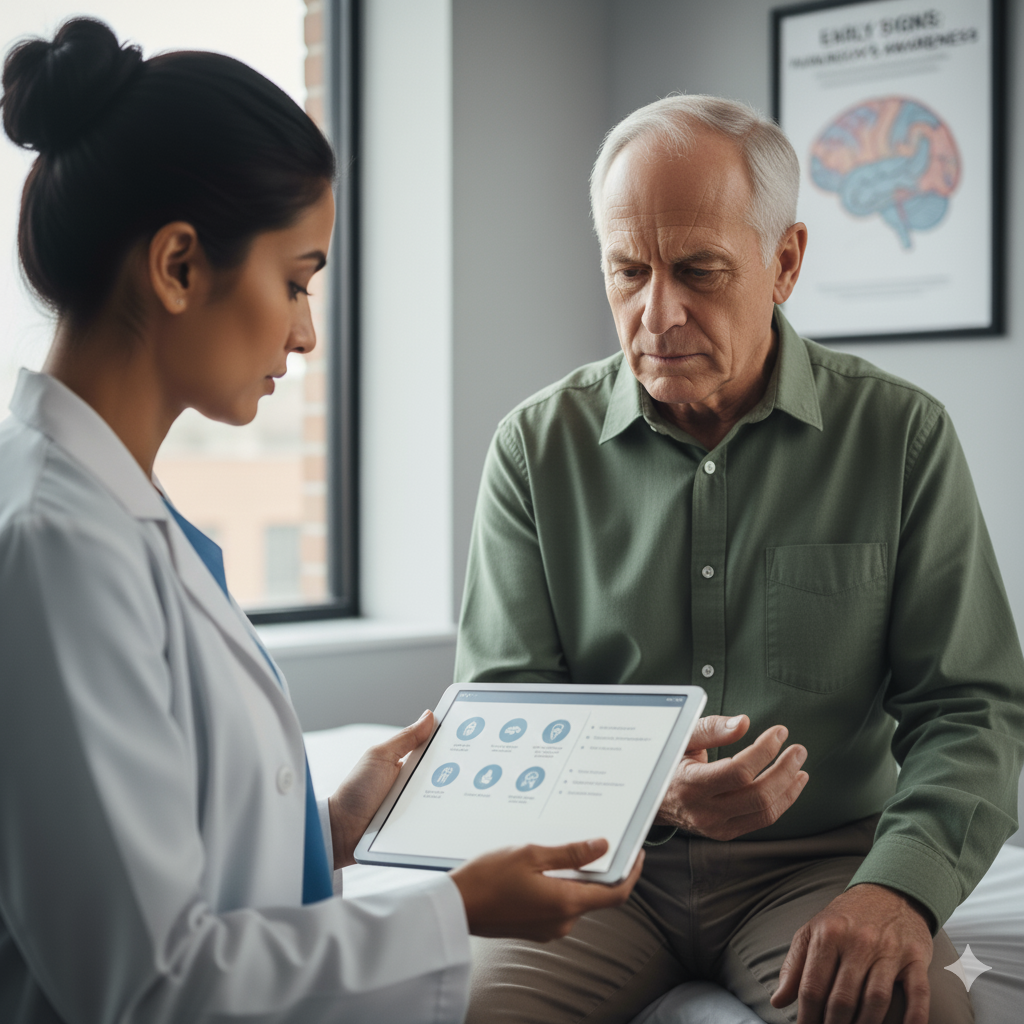

Parkinson’s disease doesn’t show up overnight. In many cases, subtle symptoms begin developing years before an official diagnosis. For some, these changes are easy to overlook. For others, they raise one of the biggest questions we hear: Am I seeing the early signs of Parkinson’s?
At The Center for Movement Challenges, we work with people at all stages of Parkinson’s, including those just beginning to suspect that something isn’t quite right. Understanding the early signs can help you act sooner, feel more in control, and get support before symptoms begin to affect your daily life.
Here are five of the most researched and recognized early signs of Parkinson’s disease, and what you can do if you notice them.
If your morning coffee doesn’t smell strong or food has lost its flavor, this could be more than just a cold. Loss of smell is one of the earliest and most overlooked symptoms of Parkinson’s.
Researchers believe that the areas of the brain responsible for smell may be affected by Parkinson’s well before motor symptoms appear. Some studies show that loss of smell can occur five to ten years before diagnosis.
What to watch for:
Other conditions can cause a loss of smell too. However, if this symptom appears with others on this list, it’s worth a conversation with your doctor.
Everyone dreams, but not everyone acts out their dreams. People with REM sleep behavior disorder (RBD) may talk, kick, punch, or move around in their sleep. This sometimes results in injury to themselves or a sleep partner.
Research shows a strong link between RBD and the later development of Parkinson’s and other movement disorders. In fact, more than 80 percent of people diagnosed with RBD eventually develop a neurodegenerative condition.
What to look for:
Sleep issues are common in Parkinson’s, so noticing them early is important.
Have you noticed your handwriting getting smaller, more cramped, or harder to read? This condition is called micrographia, and it may be an early motor symptom of Parkinson’s.
Parkinson’s can affect fine motor control, making it harder to produce smooth, fluid movements with your hands.
Watch for:
If writing feels different than it used to, especially when paired with other signs, it may be a red flag.
One of the first visible movement changes in Parkinson’s is often a reduced arm swing on one side of the body. This shows up when walking, as one arm may stay stiff while the other swings normally.
This often comes with muscle stiffness, especially in the shoulders, hips, or legs.
Early signs include:
At The Center for Movement Challenges, we teach exercises that target these mobility changes in our in-person sessions and online Parkinson’s classes.
Parkinson’s can affect facial muscles and vocal strength. This may lead to facial masking, where your expressions become more neutral or harder to read. You may also begin speaking more softly, slurring your words, or having trouble projecting your voice.
You might notice:
These are subtle changes, but they can be important early clues.
Not everyone who experiences one or two of these symptoms will go on to develop Parkinson’s. However, if you notice several signs at once, especially if they worsen gradually, it’s time to take action.
At The Center for Movement Challenges, we support people who are just beginning their Parkinson’s journey. Our early-stage classes are designed to help you build strength, flexibility, and confidence — no diagnosis required.
Catching Parkinson’s early allows you to take control of your care before major symptoms develop. Early detection can lead to:
Even without a diagnosis, proactive care can improve mobility and quality of life.
Parkinson’s doesn’t always begin with tremors. In many cases, it starts with small, subtle changes that are easy to ignore. But if something feels off, listen to your body.
If you’re noticing signs in yourself or someone you care about, now is the time to act. Join one of our online Parkinson’s classes or schedule a consultation to learn more.
Visit www.centerformovementchallenges.org to explore programs designed for every stage of Parkinson’s.
You know your body. When something feels off, we’re here to help you move forward.

